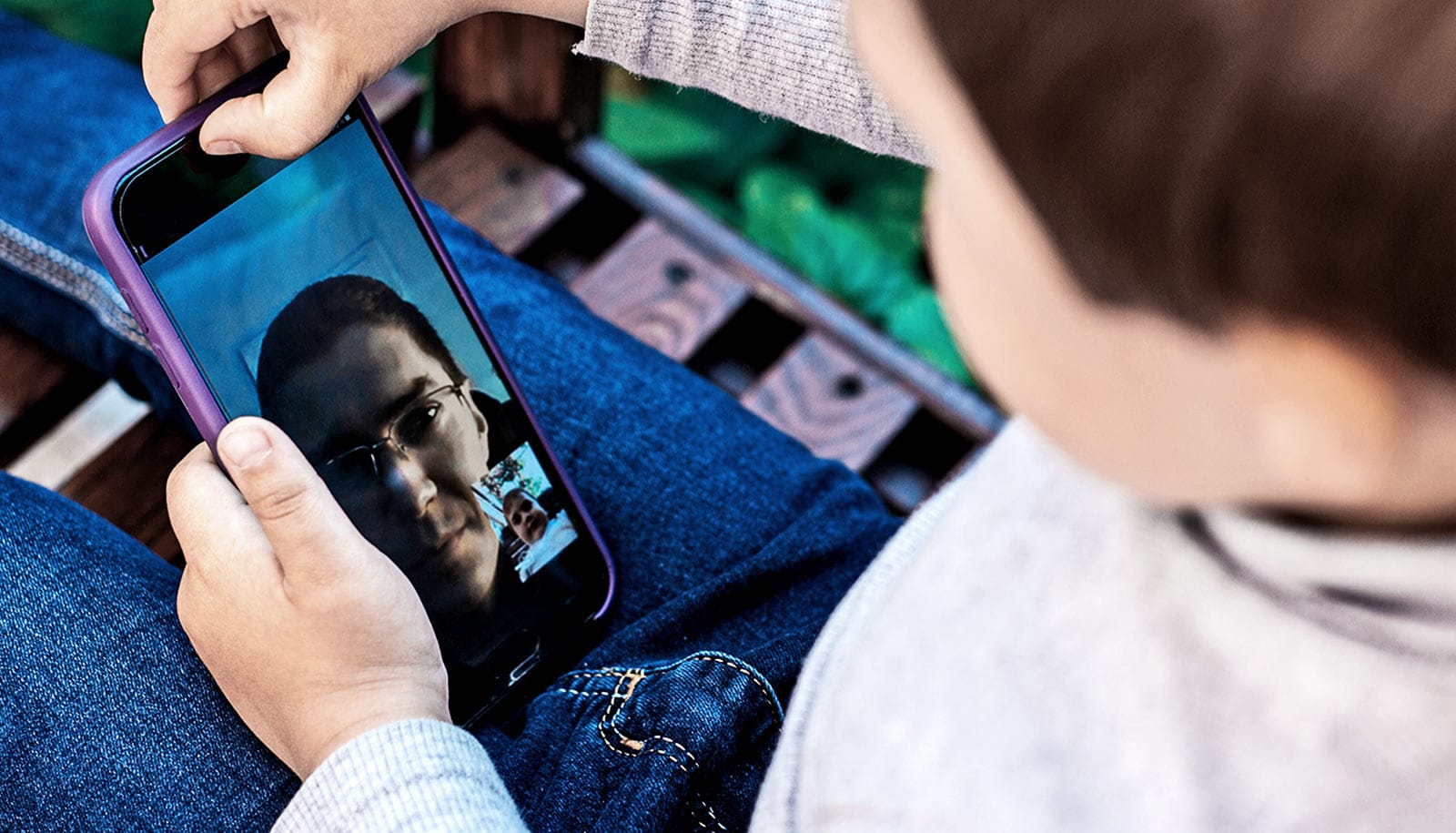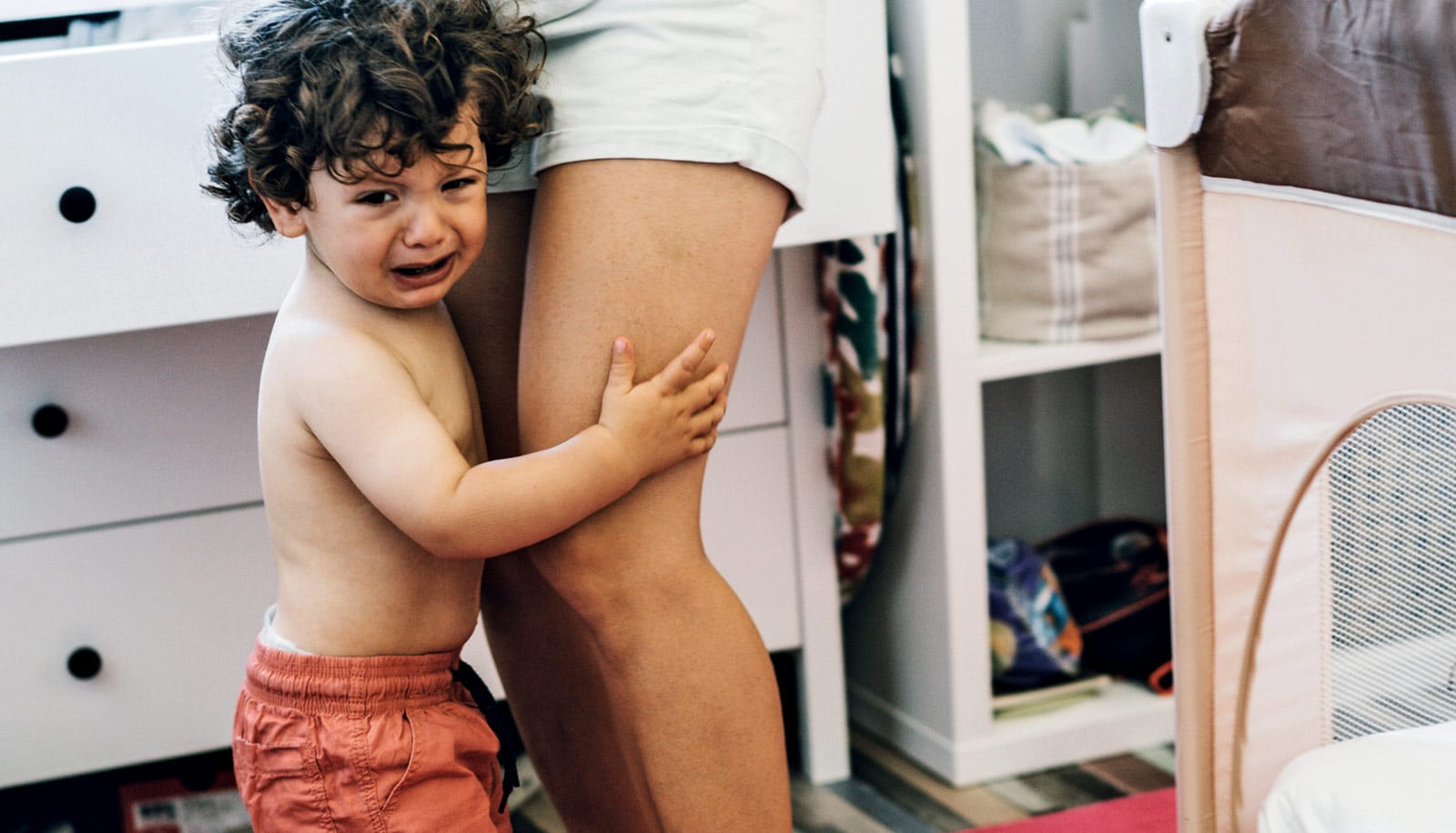
"We need to train social workers in how to navigate co-parenting circumstances in which the parents were never partners," says Qiana Cryer-Coupet. (Credit: Getty Images )
3 things keep dads involved with kids in ‘kinship care’
Several factors shape how involved dads can be with their kids when they don't have custody and their child is living in kinship care, researchers say.
New research highlights several factors that play key roles in determining the extent that fathers who don’t have custody can stay involved in their children’s lives—specifically in cases where the children are in “kinship care.”
“A lot of work has been done on mothers and children who are in kinship care, meaning that the primary caregiver for the children is a member of the extended family , including friends who are ‘like family,'” says Qiana Cryer-Coupet, an assistant professor in the School of Social Work at North Carolina State University.
“But fathers are also often significant figures in kinship-care arrangements, and there is far less research on how we can work with fathers and kinship caregivers to support the well-being of children.
“This study is exploratory, but it is fundamental to the broader goal of fostering engagement with fathers,” Cryer-Coupet says.
For the qualitative study, researchers conducted in-depth interviews with 25 fathers whose children were in kinship care and found three factors played an important role in determining the extent to which fathers felt they could be involved in the lives of their children.
A significant factor was self-efficacy, or the extent to which the fathers felt that they had the tools they needed to parent successfully. Much of the concern here revolved around having sufficient financial resources to support their child. For example, one father highlighted the difficulty of feeding and housing a family on minimum-wage earnings.
A second factor was the relationship that each father had with his child’s primary caregiver. For example, fathers were better able to be part of their children’s lives when caregivers shared information with the fathers about opportunities to be actively engaged—such as upcoming doctor’s appointments, school meetings, or children’s sports.
“This finding is valuable, because it tells us that we need to train social workers in how to navigate co-parenting circumstances in which the parents were never partners,” Cryer-Coupet says. “For example, the father may be co-parenting with the child’s maternal grandmother. The dynamics can be very different.”
The third factor was the father’s relationship with the child. This included the degree of comfort and familiarity between father and child, but it also extended to how the father was able to relate to the child in the context of institutional systems.
“Many fathers are not always clear on what their parental rights are,” Cryer-Coupet says. “And social workers may need to help fathers navigate social services, education, health care, and the legal system. These systems are often complex and complicated, which may pose an obstacle to the father being as engaged as they want to be with their children’s lives.
“One other finding that we found interesting was the extent to which fathers were using various technologies to create additional opportunities to interact with their children—whether that was through the chatrooms on video games or through video-call apps.
“This work represents a significant step forward in our understanding of fathers with children in kinship care, but it also underscores how understudied this group is,” Cryer-Coupet says.
“Further research is warranted, and we are hoping to secure funding that would allow us to conduct a larger, longer-term study. There’s every reason to believe that work in this area could have significant benefits for both children and fathers.”
The current study was part of a larger project that seeks to understand father, caregiver, and practitioner perspectives on father engagement in kinship care. The Fatherhood Research and Practice Network and the Office of Family Programs in the US Department of Health and Human Services’ Administration for Children and Families supported the work.
The study appears in Children and Youth Services Review .
Source: NC State
The post 3 things keep dads involved with kids in ‘kinship care’ appeared first on Futurity .
Share this article:
This article uses material from the Futurity article, and is licenced under a CC BY-SA 4.0 International License. Images, videos and audio are available under their respective licenses.


